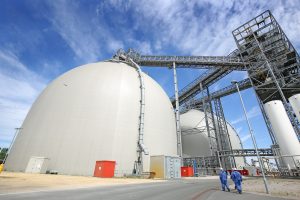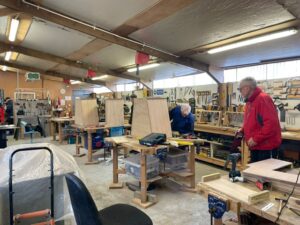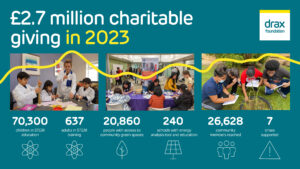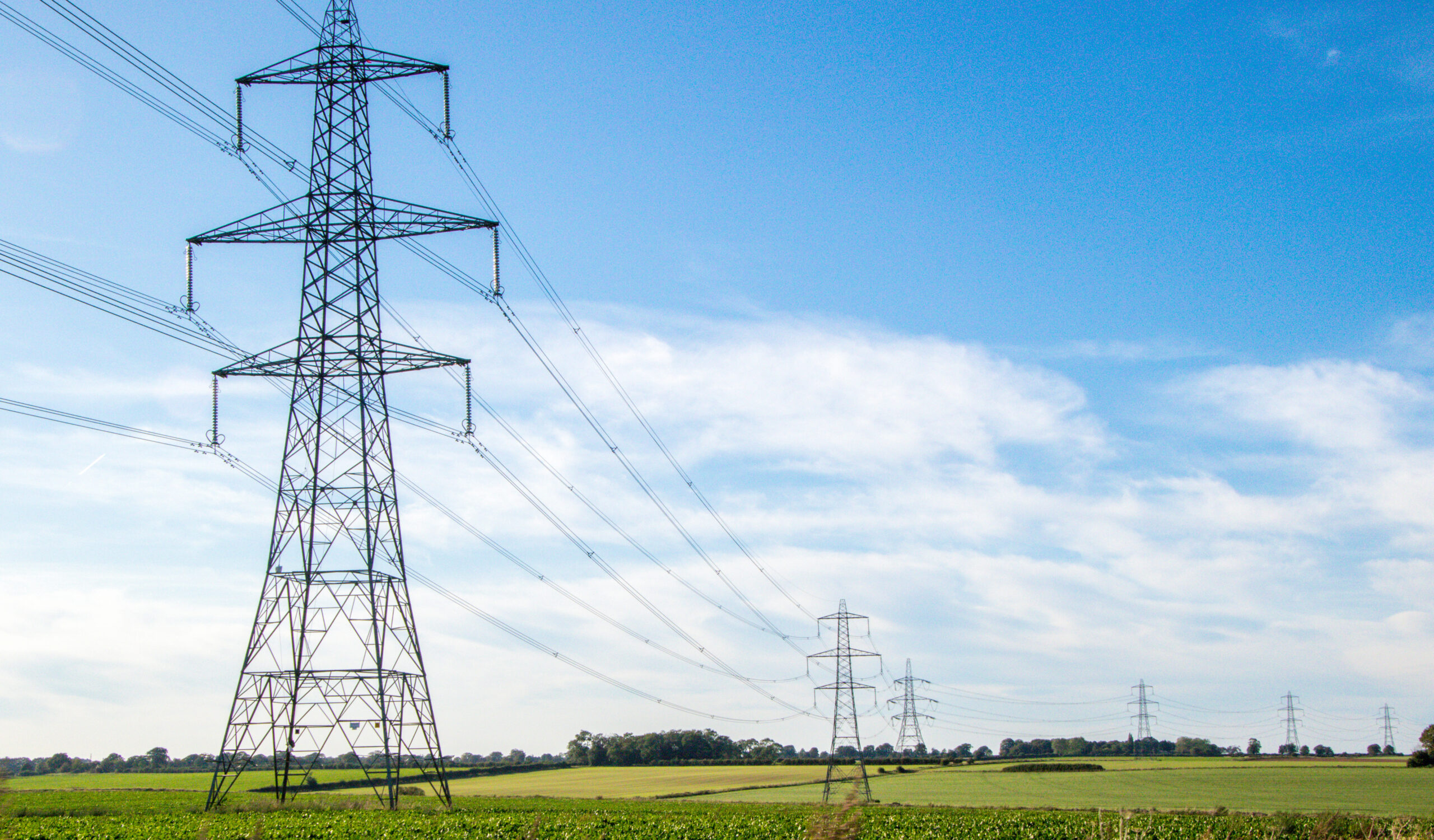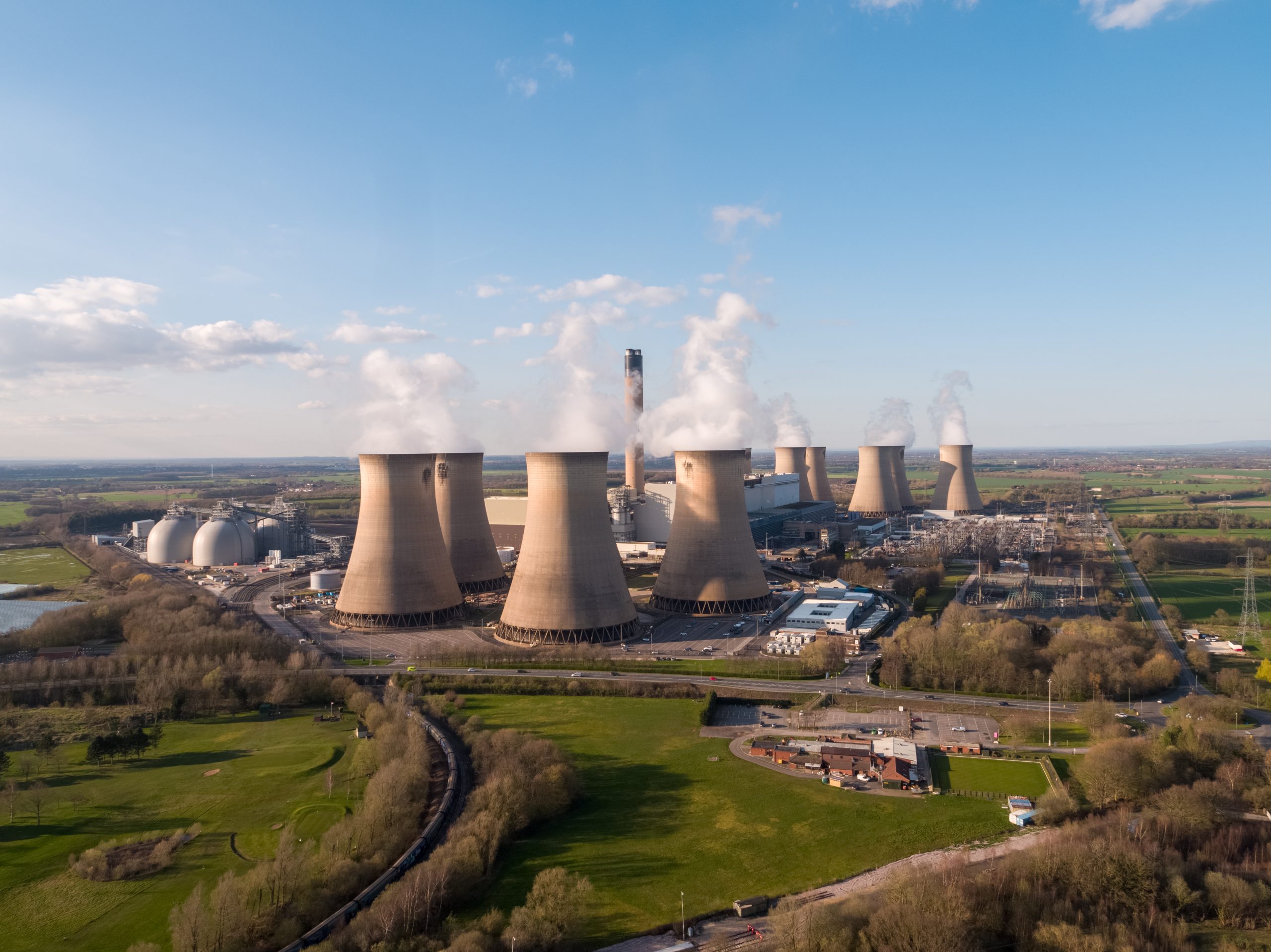
- First round of funding from the Drax Community Fund will see donations given to 33 organisations across the UK.
- Organisations that will receive donations include Northamptonshire Search and Rescue, Parklands Tigers FC, The Northants Knights American football team and Towcestrians Sports Club – rugby team U11s.
Renewable energy leader, Drax Group has announced the support it will provide to community organisations local to its operations though its new Community Fund, launched in 2023.
Drax’s Community Fund provides donations of up to £2,000 in the first round of funding for a variety of projects which support local communities.
Opus Energy, Drax’s renewable energy supply business works with small and medium sized companies and is based in Northampton.
Richard Shakespeare, Director of Opus Energy, said: “We are proud to support a diverse range of organisations in Northamptonshire, from aiding Northamptonshire Search and Rescue to assisting Parklands Tigers FC in encouraging local young people to get involved in local sport. Our donations aim to foster inclusivity, sportsmanship, and community spirit across our local area.”
Northampton projects that will receive donations include:
- Northamptonshire Search and Rescue: supporting the charity to help the police with finding missing persons.
- Parklands Tigers FC: funding to hold a summer football tournament for all community youth teams across Northampton.
- The Northants Knights American football team: funding to provide individuals with equipment such as balls, helmet shoulder pads and uniforms to reduce costs and open the sport up to anyone that wishes to participate.
- Towcestrians Sports Club – rugby team U11s: funding to support the under-11s rugby team to participate in a tournament.
Keith Hayhoe, Vice Chairman, Parklands Tigers FC, said: “We are delighted to be awarded a grant from Drax’s Community Fund this year to help with the organisation and promotion of our annual Summer Youth Football Tournament. Our tournament provides a safe and enjoyable space for young people and their families to participate in an outdoor sports event that promotes valuable life skills within the community.”
To find out more about the Drax Community Fund and how to apply for funding, go to the website.
Notes to editors:
Drax Foundation, launched last March and awards larger grants of up to £50,000 for established, non-project organisations.
Drax recently announced the Community Foundation has given £2.7m in charitable giving for regional programmes and grassroots projects globally, of which £1.3 million went to UK projects.
ENDS
Media contacts:
Andy Low, Media Manager
E: andrew.low@drax.com
T: 07841 068415
About Drax
Drax Group’s (Drax) purpose is to enable a zero carbon, lower cost energy future and in 2019 announced a world-leading ambition to be carbon negative by 2030, using bioenergy with carbon capture and storage (BECCS) technology.
Drax’s c.3,500 employees operate across three principal areas of activity – electricity generation, electricity sales to business customers and compressed wood pellet production and supply to third parties. For more information visit www.drax.com
Power generation:
Drax owns and operates a portfolio of renewable electricity generation assets in England and Scotland. The assets include the UK’s largest power station, based at Selby, North Yorkshire, which supplies four percent of the country’s electricity needs.
Having converted Drax Power Station to use sustainable biomass instead of coal it has become the UK’s biggest renewable power generator. It is also where Drax is piloting the negative emissions technology BECCS within its CCUS (Carbon Capture Utilisation and Storage) Incubation Area.
Its pumped storage, hydro and energy from waste assets in Scotland include Cruachan Power Station – a flexible pumped storage facility within the hollowed-out mountain Ben Cruachan.
The Group also aims to build on its BECCS innovation at Drax Power Station with a target to deliver 4 million tonnes of negative CO2 emissions each year from new-build BECCS outside of the UK by 2030 and is currently developing models for North American and European markets.
Pellet production and supply:
The Group has 18 operational pellet plants and developments with nameplate production capacity of around 5 million tonnes a year.
Drax is targeting 8 million tonnes of production capacity by 2030, which will require the development of over 3 million tonnes of new biomass pellet production capacity. The pellets are produced using materials sourced from sustainably managed working forests and are supplied to third party customers in Europe and Asia for the generation of renewable power.
Drax’s pellet plants supply biomass used at its own power station in North Yorkshire, England to generate flexible, renewable power for the UK’s homes and businesses, and also to customers in Europe and Asia.
Customers:
Drax supplies renewable electricity to UK businesses, offering a range of energy-related services including energy optimisation, as well as electric vehicle strategy and management.
To find out more go to the website www.energy.drax.com






